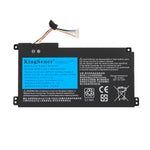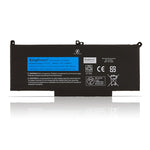You have no items in your shopping cart.
Is the actual battery life of a laptop not as good as the official rating?

In addition to performance and portability, battery life is an important indicator that determines the overall user experience of a thin and light notebook. After all, a thin and light notebook has good portability, and users may use it for work and entertainment anytime and anywhere. When it is inconvenient to connect to an external power source, a long battery life is naturally needed to help.
However, in real life, we may often encounter such a problem: the actual battery life of the laptop is not as good as the official propaganda. Why does this problem occur? Is this a false propaganda by the laptop manufacturer?
Is the battery life officially marked by the manufacturer for reference only?
Many people buy a product after getting a preliminary understanding of it through advertisements. However, many times, people may find that there are many differences between advertisements and actual experience. For example, many thin and light notebooks’ advertising pages show that its battery life is up to XX hours, but in actual use, users do not experience it as good as the official advertisements say .
It's not that simple. First of all, we need to understand that each user of a thin and light notebook has different usage habits. For example, some people like to chat online, some need to type all the time, some use headphones to watch TV series, some listen to music at the highest volume, and some even need to edit videos temporarily .
Even for the same user, his daily usage scenarios and notebook settings may be completely different, so for a thin and light notebook, its battery life varies from person to person. If a user likes to chat online, a notebook's battery life may reach 10 hours, while for a user who often edits videos, this notebook's battery life may be less than 5 hours.
Therefore, it can be said that different people have different definitions of laptop battery life, and laptop manufacturers cannot write out the corresponding battery life for each person. Even using a general daily office scenario, the results in the hands of different users will vary greatly.
In this case, manufacturers rarely consider the user's perspective, but instead stand on their own standpoint. For the purpose of promotion and publicity, they will adopt methods and data that are beneficial to themselves when marking the battery life of laptops - often choosing results obtained under ideal conditions.
What affects laptop battery life?
For a laptop , there are many factors that affect its battery life, but the most important ones are the battery, processor and screen. First of all, the battery factor is easy to understand. For laptops of the same size, the larger the battery capacity, the longer its battery life. For example, many gaming laptops now have large-capacity batteries of 99.9Wh. However, the larger the capacity of the battery, the more space it will take up inside the laptop, which goes against the original intention of the laptop to be portable. Now the battery capacity of most thin and light laptops is between 50Wh and 75Wh. Consumers who focus on battery life can give priority to laptops with large-capacity batteries .
The processor is also an important factor affecting the battery life of a laptop . After all, the processor is a core component in a laptop. The higher its power consumption, the more power it consumes, and the shorter the battery life of the laptop. According to the different TDP power consumption, processor manufacturers have long divided processors into different camps, such as the low-voltage U series, the standard-voltage H series, and even the higher-power HX series.
The screen is another important factor that affects the battery life of laptops. First of all, the screen itself also consumes power. High-power screens (2W~3W) are naturally more power-hungry than those with low power consumption of 1W. The screen size and resolution will also affect the battery life of the laptop. Generally speaking, the larger the screen size and the higher the resolution, the more power it consumes. In addition, the brightness of the screen will also affect the battery life. The higher the brightness, the more power it consumes. Therefore, we see that many notebook manufacturers set it to 150nit when testing battery life.
Tips to extend laptop battery life
What are some ways for individual users to improve battery life in their daily use of laptops? We have summarized some tips here.
When using the battery, it is recommended that you set it to "best energy efficiency" mode to get longer battery life.
Many Windows laptop manufacturers also develop their own performance modes. For such laptops, it is recommended that you switch to corresponding "energy saving", "quiet", "silent" and other modes.
The battery life can also be extended by adjusting the screen parameters and the system's sleep time.
For Mac users, you can turn on "Low Power Mode" in "Settings-Battery". At the same time, turning on functions such as "Optimize battery charging" and "Optimize video streaming playback on battery power" will also help extend battery life.
Summarize
Putting aside the advertisements of notebook manufacturers, driven by the technologies of processors, screens, network cards, batteries, etc., most of today's thin and light notebooks have good battery life, and even some high-performance gaming notebooks can last up to seven or eight hours, which is a great improvement compared to the past. Even if we cannot perfectly reproduce the ideal battery life performance of the manufacturer's official standard, the actual use is not too bad, and only a very small number of them have quality problems.
So you don't have to worry too much about the battery life of your laptop. For readers who really have this need, we recommend that you give priority to laptops with large battery capacity in the same size .
If this article still doesn't help your laptop battery, you can buy a new battery at BatteryMall.com
If you want to learn more about batteries, please visit: BatteryMall.com/blogs/support








